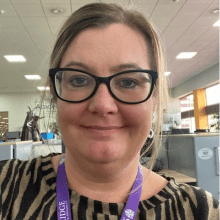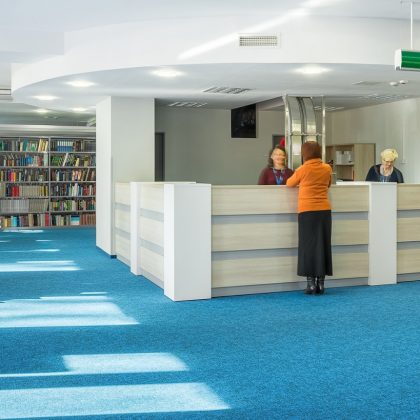How we make customer led business decisions with our Librarian Advisory Boards
Cambridge University Press founded its first librarian advisory board in spring 2004. The board members were mainly UK academic librarians, with a sprinkling of librarians from European countries who were attending the UKSG Conference, which that year took place in Manchester. The board meeting was held during the Sunday afternoon preceding the conference. There were fifteen board members in this founding group.
The agenda of the first meeting focused almost exclusively on journals. Cambridge Journals Online (CJO) had been recently launched and the board members were invited to give their opinions about the functionality of the platform, how the content was arranged, pricing models and Cambridge’s plans for developing it. The meeting was a great success. To keep the dialogue going, members were asked to begin to contribute to regular virtual rounds of questions (‘round robins’) two or three times a year. Some of the questions asked for views on other Cambridge products as well as journals; most were on more general topics important to both academic librarians and publishers: Open Access, while it was still in its infancy, the rise of the Institutional Repository, the continually evolving role of the librarian, etcetera. The virtual rounds have stood the test of time – the round robins are still flourishing – and periodically some of those early questions are revisited, usually eliciting very different answers today. An occasional newsletter was created for the board members. Called E-Lib, it survived until 2016, when it was absorbed into the Cambridge blog. Articles intended for the board members and for librarians generally – such as this one – still feature on the blog. The first two-day meeting was held in Cambridge in November 2004. Ten of the original board members attended.
The board grew larger. More Europeans were invited to join and, in 2009, several American and Canadian librarians. ‘Guest’ members from far-flung countries – e.g., Latin America, South Africa, India, New Zealand and Australia – joined the round robin dialogues, although only librarians from the UK and Europe came to the meetings, which from 2009 were held in European cities as well as Cambridge.
In 2011, the Cambridge Asian Librarian Advisory Board [CALAB] was founded, followed by the North American Librarian Advisory Board [NALAB] in 2016, the South Asian Librarian Advisory Board [SALAB] in 2017 and the Australian and New Zealand Librarian Advisory Board [ANZLAB] in 2018. In 2021, a Chinese Librarian Advisory Board was set up, to focus mainly on research issues. All the boards have met in person in their respective regions at least once, though the Chinese board’s only face-to-face meeting was ‘hybrid’ – the librarians gathered at a Chinese university, accompanied by members of the Cambridge Asia team, while others from Cambridge and guest speakers joined remotely. All the boards met remotely during the two years of Covid restrictions. Face-to-face meetings were restarted in December 2021.
The topics the boards discuss have become more strategic in nature and reflect the huge shifts in approach to teaching and learning, research, librarianship and publishing that have taken place over the past eighteen years. Board members continue to advise Cambridge as it develops new products, solutions and business models. The advice and insights they provide have been invaluable to the Cambridge directors in helping them to understand resource and authorship needs in the rapidly changing modern academic environment.

As Becky Roberts, the Senior Customer Insights Manager at Cambridge, says: “Our library advisory boards have been, and continue to be, at the centre of our customer insights strategy. We rely upon the open and honest dialogue the boards have with us to help navigate the changing open access landscape and shape our decisions in teaching and learning in higher education. The stand-out contribution for me was the advisory board feedback into functionality and tools for the launch of our Higher Education website, which was brought forward owing to the unexpectedly rapid worldwide shift to online learning in early 2020. Through our face-to-face meetings, and webinars during the pandemic, we’ve gained crucial feedback on our business models, policies and broader strategies and can honestly say that our decisions have been directly shaped by the librarian community.”

Having the Boards is extremely beneficial for us in many ways. It facilitates an open and regular dialogue beyond sales conversations, and highlights for us truths about customer behaviour which we may have missed, or may even be uncomfortable for publishers to take on board. For me, over the past couple of years, the really standout benefits have been in helping us to calibrate the launch of our HE institutional model (where our librarians have been incredibly helpful and candid in helping us to gauge the budgetary and behavioural considerations in different regions that the model throws up), helping and supporting us to launch our Flip-it-Open OA books initiative, and crucially in feeding back on the ways student behaviours have changed through the pandemic. The discussions are incredibly insightful and valuable.
Ben Denne – Director of Publishing, Books

As our market context and our customers’ needs adapt, I have found Advisory Boards invaluable to make sure that we are responding in the right way. Over the years, the Boards have helped us to keep focused on what we do well and have provided honest feedback on what we should change. Recently, the Boards have really helped to shape our policies, business models and communication for Open Access.
Jenny Mathias – Global Marketing and Operations Director

We are working to make OA transition a reality across the breadth of our journals publishing in a way that is sustainable for all participants, be they producers, consumers or enablers of the content. We’ve benefited so much from the regional insights surfaced by each Board and have incorporated their feedback, and sometimes their challenges, into our strategies for business model transition and publishing best practice. Hearing directly from our librarian partners has also enhanced the way we’ve been able to support our publishing partners and journal editors to understand broader changes in the scholarly communications landscape and to consider ways they can respond and adapt proactively to developments.
Ella Colvin – Director of Publishing, Academic

I continue to be impressed by, and grateful for, the transparency and honesty of the dialogue that characterises each Librarian Board meeting. We bounce ideas around with frankness, and members’ recommendations have informed our strategy and model development directly, as my colleagues note. Also, they never fail to hold us to account in making these ideas a reality!
Chris Bennett – Global Sales Director






